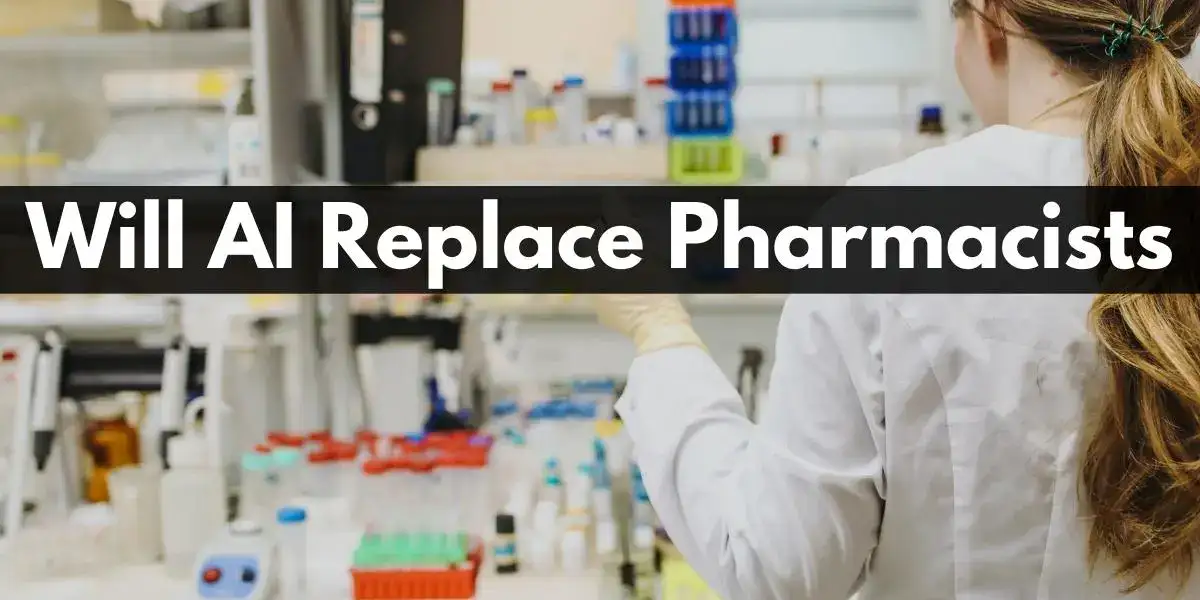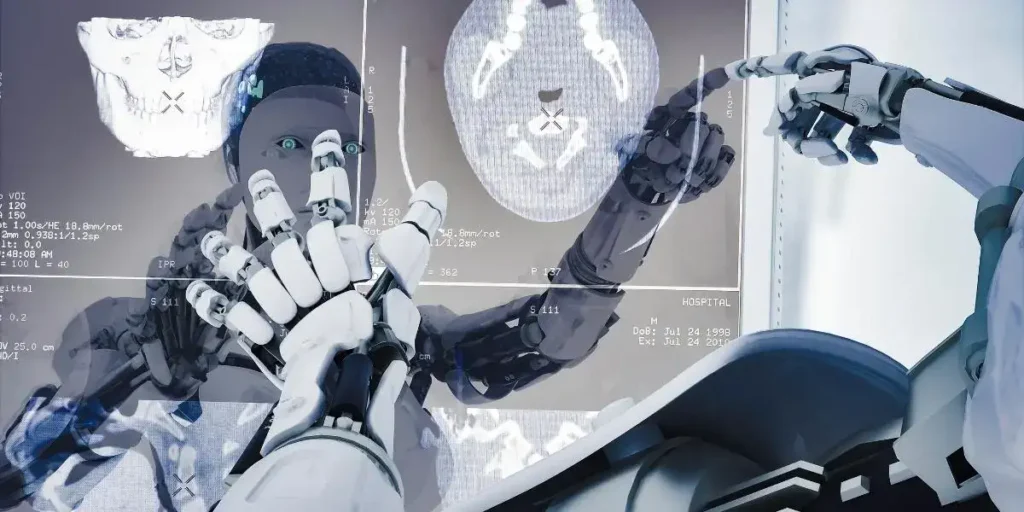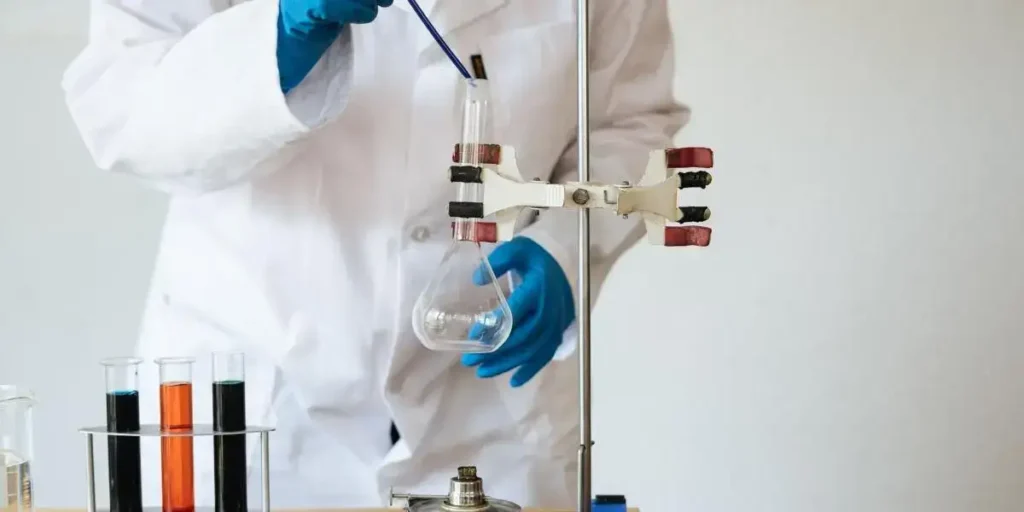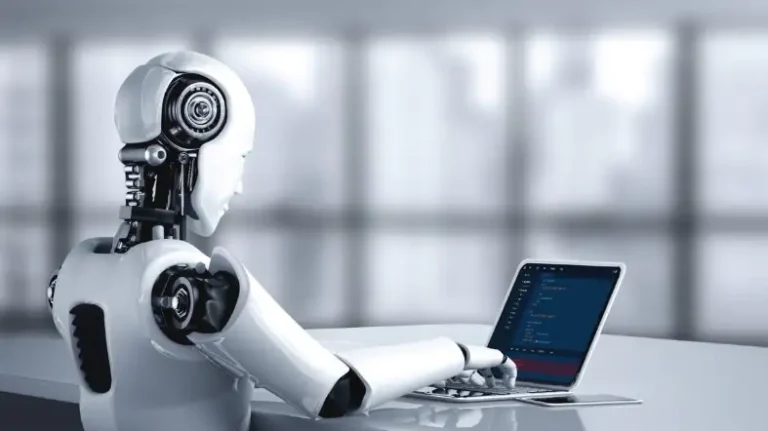The development of AI and robots has brought about a transformative shift in the industry, with many experts predicting that pharmacists could lose their jobs in the coming decades. In this article, we will discuss the potential impact of AI and robots on the role of pharmacists and explore the following topics:
- The Clinical Aspects of Pharmacy and AI
- The Need for Additional Skills and Expertise in the Pharmacy Industry
- The Importance of Training and Education for Pharmacists
- The Future of Pharmacy Automation

Will AI Replace Pharmacists?
No, AI will not replace pharmacists. Although pharmacy automation is increasing, pharmacists play an important role in patient care, counseling, and medication management. AI can assist pharmacists in their work, but more is needed to replace the human touch and expertise pharmacists provide.
What Are The Potential Impacts Of AI And Robots On The Job Market For Pharmacists?

Automation of Repetitive Tasks
AI and robots have the potential to automate repetitive tasks in the pharmacy profession. This includes dispensing medication, managing inventory, and data entry.
This automation may lead to increased efficiency, reduce errors and save time, allowing pharmacists to focus on other critical tasks.
However, the automation of repetitive tasks may also result in a reduced need for pharmacists, leading to job losses.
Improved Patient Care
AI and robots have the potential to improve patient care by reducing errors in medication dispensing and providing personalized medication management.
For instance, AI can analyze patient data, including medical history, allergies, and current medications, to identify potential drug interactions, reduce medication errors, and optimize dosages.
The use of robots in dispensing medication can also reduce errors and increase accuracy.
The use of technology in patient care can also free up pharmacists’ time, allowing them to focus on more complex patient cases.
Increased Competition from Online Pharmacies
The rise of online pharmacies has already impacted the job market for pharmacists.
AI-powered online pharmacies can analyze patient data to provide personalized medication recommendations and offer same-day delivery.
The convenience and accessibility of online pharmacies may lead to a reduction in the demand for brick-and-mortar pharmacies, impacting job opportunities for pharmacists.
Development of New Roles and Skills
The integration of AI and robots in the pharmacy profession may create new job roles and require new skills.
Pharmacists may need to adapt to using new technologies and learn to interpret and analyze data to optimize medication management.
How Are AI And Robots Being Used In The Clinical Aspects Of Pharmacy?

Automated Prescription Dispensing Systems
One of the most common applications of robots in pharmacies is automated prescription dispensing systems.
These systems use robots to count, sort, and package medications, reducing the risk of errors and improving efficiency.
The robot arm selects the right medication and dispenses the correct amount into a container, which is then labeled and dispensed to the patient.
This process can significantly reduce the time it takes for pharmacists to fill prescriptions, allowing them to focus on other critical aspects of patient care.
AI-Powered Drug Interaction Checkers
Another way that AI is being used in pharmacies is through drug interaction checkers.
These are computer programs that use AI algorithms to identify potential drug interactions between multiple medications a patient may be taking.
These systems can analyze vast amounts of data to identify even the most subtle interactions, helping pharmacists to make more informed decisions about drug therapies.
AI-powered drug interaction checkers can also alert pharmacists to potentially dangerous combinations of medications, helping to prevent adverse drug events.
Virtual Pharmacy Assistants
AI is also being used to develop virtual pharmacy assistants that can interact with patients through chatbots or other digital platforms.
These virtual assistants can answer common questions about medications, provide dosage instructions, and even help patients refill their prescriptions.
This technology can significantly improve patient outcomes by providing more accessible, personalized, and convenient access to pharmacy services.
Precision Medicine
A new method of providing healthcare called precision medicine makes use of patient-specific data, including genetic information, to provide more individualized and targeted therapies.
Huge volumes of patient data are being analyzed using AI and machine learning to find patterns and connections that may be utilized to create more accurate therapies.
By using this technology, pharmacists may forecast patient reactions to drugs, identify patients who are more likely to have adverse drug events and create more individualized treatment regimens.
Medication Adherence Tools
Medication non-adherence, which affects up to 50% of patients, is a major healthcare concern.
Innovative technologies that may increase adherence to medicine are being created with the help of AI and robotics.
For instance, some pharmacies are using intelligent pill bottles that notify patients if they forget to take their meds and utilize AI algorithms to remind them when to do so.
Other pharmacies package pharmaceuticals using robots to create convenient blister packs that let patients take their prescriptions as prescribed.
What Are The Key Skills Needed For Pharmacists In The Age Of Automation?

Technological proficiency
Pharmacists must be adept at utilizing technology as more pharmacies transition to automation.
The different computer systems, automated dispensing equipment, and electronic health records (EHR) systems must be operated by them.
Knowing how to use these technologies can help pharmacists work more effectively and correctly, as well as interact with patients and other healthcare providers more effectively.
Critical thinking and problem-solving skills
While automation has improved the efficiency of pharmacies, it’s not always foolproof. The technology may have errors or malfunctions, which can lead to medication errors or other issues.
Therefore, pharmacists need to have strong critical thinking and problem-solving skills to identify and solve problems as they arise.
Social and communication abilities
Despite the fact that technology has made many areas of the pharmacy process simpler, good interpersonal and communication skills are still crucial for pharmacists.
They must be able to interact effectively with patients, medical staff, and other healthcare providers.
In order to guarantee that patients acquire the appropriate prescriptions and comprehend how to take them properly, clear and efficient communication is essential.
Observation of details
For pharmacists, paying close attention to detail is essential, particularly when delivering medications.
Pharmacy professionals run the danger of becoming complacent as a result of automation and thinking that the machines are always right.
Nevertheless, mistakes may still happen, so it’s critical for pharmacists to be vigilant to make sure that patients are given the right prescriptions and quantities.
Perpetual learning and improvement
Technology is continually changing, and new devices and systems are often released.
Pharmacists must be eager to pick up new skills and make ongoing adjustments to these developments.
This entails remaining current with emerging technology and participating in training sessions to improve their expertise.
What Predictions Are There For The Future Of Pharmacy Automation?

Increased Use of Robotics
One of the most significant predictions for the future of pharmacy automation is the increased use of robotics. Robots can perform a variety of tasks, including dispensing medication, preparing IV solutions, and packaging medication.
By using robots, pharmacies can reduce errors and improve efficiency.
For example, robots can work around the clock without needing breaks, speeding up the dispensing process and reducing wait times for patients.
More Personalized Medicine
The growth of personalized medication is another forecast for pharmacy automation in the future.
Technology advancements have made it feasible to customize drugs to a patient’s specific genetic profile.
Personalized prescription programs with fewer side effects may be made by pharmacists using this technology.
By improving the ordering and dispensing process, automation may also assist pharmacies in managing the logistical aspects of personalized medication.
Greater Integration with Electronic Health Records
Pharmacies will need to interact with these systems as more healthcare providers embrace electronic health records (EHRs) to guarantee continuity of service.
By automatically updating patient data, giving real-time medicine orders, and dispensing information, automation may aid pharmacies in managing this procedure.
Pharmacies may enhance communication with medical professionals and lower the possibility of prescription mistakes by connecting with EHRs.
Improved Inventory Management
Inventory management is a critical component of pharmacy operations. By using automation to track inventory levels and reorder medications as needed, pharmacies can reduce waste and ensure they always have the medications patients need.
Automation can also help pharmacies manage expired medications by alerting staff when medications are approaching their expiration dates.
Increased Patient Engagement
Finally, automation can help pharmacies increase patient engagement by providing more personalized care.
For example, pharmacies can use automation to send patients reminders about when to take their medication, provide information about potential side effects, and answer frequently asked questions.
By providing more personalized care, pharmacies can improve patient outcomes and build stronger relationships with their patients.
FAQs
What Is The Current Role Of AI In Pharmacy?
AI is currently being used in pharmacies to provide guidance on drug interactions, drug therapy monitoring, and drug formulary selection. It can also be used in pharmacy management systems to track patient utilization.
How Accurate Is AI In Medication Compounding?
AI is more accurate than humans in checking medication compounding
Are Pharmacists At Risk Of Losing Their Jobs To AI?
There are concerns that AI and robots will replace pharmacists in the coming decades due to the increasing role of pill-dispensing robots, prescription delivery services, and ever-improving AI.
How Much Do Pharmacists Earn?
In 2021, the median annual wage for pharmacists was $128,570 or $61.81 hourly. Pharmacists are paid 181.0% higher than the national median wage.
What Is Pharmacy Automation?
Pharmacy automation is the use of technology to perform tasks such as storing, administering, filling, packaging, and labeling medications for distribution.
What Is The Probability Of Automation For The Job Of A Pharmacist?
Based on a 2013 study, the job of a pharmacist has a very low automation risk level with a probability of automation of only 1.2%.
Conclusion
Although AI has the capacity to completely replace pharmacists, it is doubtful that it will do so in the pharmaceutical sector.
The management of complicated drug regimens and medication counseling are important tasks for pharmacists in patient care.
While AI might help pharmacists with their everyday activities, it cannot replace the sensitivity and personal touch that pharmacists bring to their work.
In order to enhance patient outcomes and optimize drug treatment, AI and human chemists will probably work together in the future of pharmacy.





